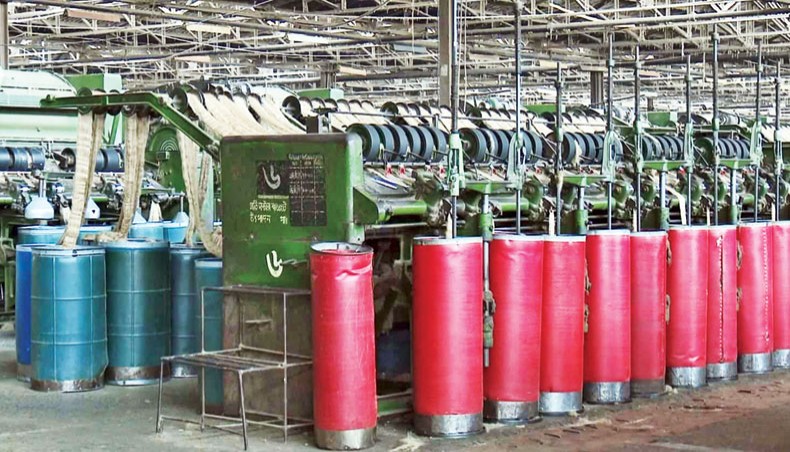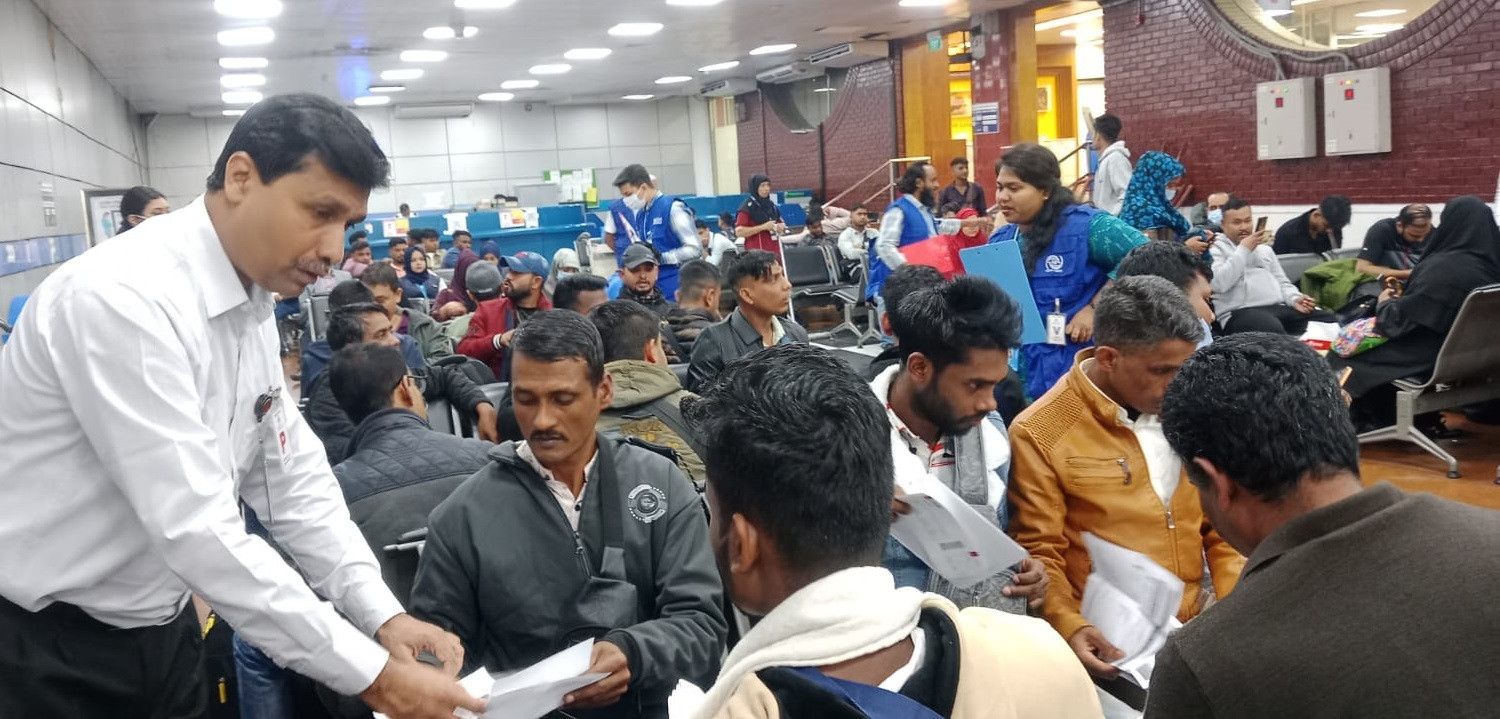Most of the workers of state-owned jute mills expressed grave concern about their future as uncertainty looms large over their lives due to their sudden loss of jobs following the closure of their mills.
With the government decision to close all the 25 jute mills from July 1, they said that about 50,000 workers, including 24,886 permanent workers and remaining irregular ones, became jobless at the time of COVID-19 outbreak when job cuts in the private sector is rampant.
They fear that there would be no jobs in this crisis for the newly unemployed workers.
The workers said that the notice of the Textiles and Jute Ministry hung at the gate of jute mills early Friday read that the workers received ‘golden handshakes’ as production was declared closed since July 1, though they joined their works on July 1 and July 2.
The workers said that most of the workers were now empty handed and have no shelter of their own and feared that they would have to leave their residences at jute mill colony as the decision of closure had already been executed.
They raised questions about the silence of the jute mill labour leaders when the mills were declared closed.
The newly jobless workers in Khulna and Jashore, hearing the news of the notice that the authorities hung on their mill gates, ran to see for themselves on early Friday and Friday morning and wailed holding each other, shunning COVID-19 infection fear, expressing fear about their future, New Age correspondents reported, quoting labourers and witnesses.
‘Almost all of the workers now living in mill colonies and most of them have no village home. Where would they go now? We are now worried about our shelter, children’s education and getting new jobs to run our families at this tough time of coronavirus,’ Crescent Jute Mills Workers’ Union vice-president Akram Ali said.
The workers said that though the permanent workers would get benefit of golden handshake, the amount would be low for most of the workers while the irregular ones would get nothing.
Some of the permanent workers expressed their doubt about getting the benefits in the government stipulated time.
They expressed their dissatisfaction over the silence of the jute labour leaders during their crisis.
‘To me, the news of the mill closure was like a bolt out of the blue. I worked here for 35 years,’ said Md Shahjahan, 53, of Platinum Jubilee Jute Mills in an emotion-choked voice.
‘We had earlier taken to the streets demanding due wages but there was hope that we would get it. But I have no job and am still uncertain whether I would get any,’ he said and questioned whether they would get the benefits soon.
A recent survey by Bangladesh Institute of Development Studies said that about 13 per cent people of the country had become unemployed recently due to the COVID-19 outbreak.
According to the report, 19.23 per cent with income less than 5,000 taka reported that their income reduced by 75 per cent, while 23.31 per cent with income between 5,000-15,000 taka reported an income reduction by 50 per cent relative to the last month’s income.
PJJM worker Md Milon, 37, from Tupuria under Kotalipara in Gopalganj said that he had been working at the mill as a permanent worker.
‘We don’t want to leave. What will happen to our children’s education?,’ he said and alleged that none of their leaders even came to see them and questioned their silence in the past two days about the closure.
‘They threatened a massive and tough movement if mills were closed. There were huge preparations for the imminent movement. Where are the leaders now? Why did things end suddenly?’ he asked.
An irregular labour for about 10 years in the mill, Md Al Mamun, 35, said he fell in an utter uncertainty about running his 5-member family. ‘I have no village home. I never learnt any other work. On top of that, I will get nothing from the government.’
CJM Workers’ Union vice-president Akram Ali said that the workers did not get wages for the past 11 weeks and most of them have no ancestral homes in their villages.
Though a few have their village homes, they don’t have money to go there, he said.
‘I understand that I have lost my job. I will get no job at this situation and I have nothing to do,’ 22-year old Nazmul Sheikh, an irregular worker of Star Jute Mills for one and a half years said expressing worries about running his 3-member family including mother and younger sister.
Khulna-Jashore regional unit of Bangladesh Patkol Rokhkha CBA-Non-CBA Sangram Parishad convener Sardar Abdul Hamid said that they had accepted the government decision as many workers were happy with the decision.
Besides, he wanted to know whether it was possible to cope with the situation by challenging the government decision.
A PJJM workers’ union leader, preferring anonymity, demanded that the officials and people responsible for the huge lo










